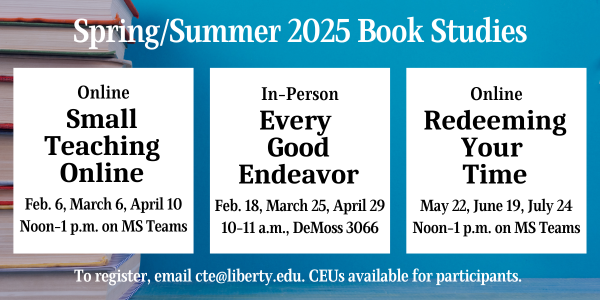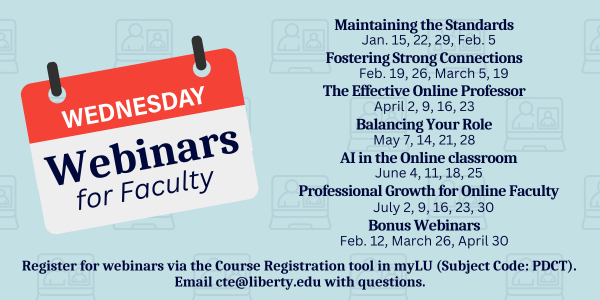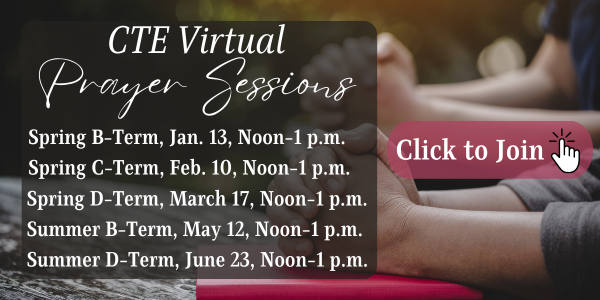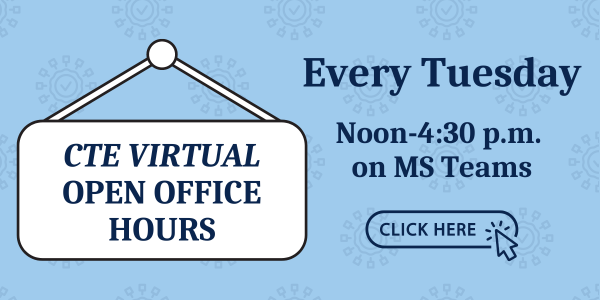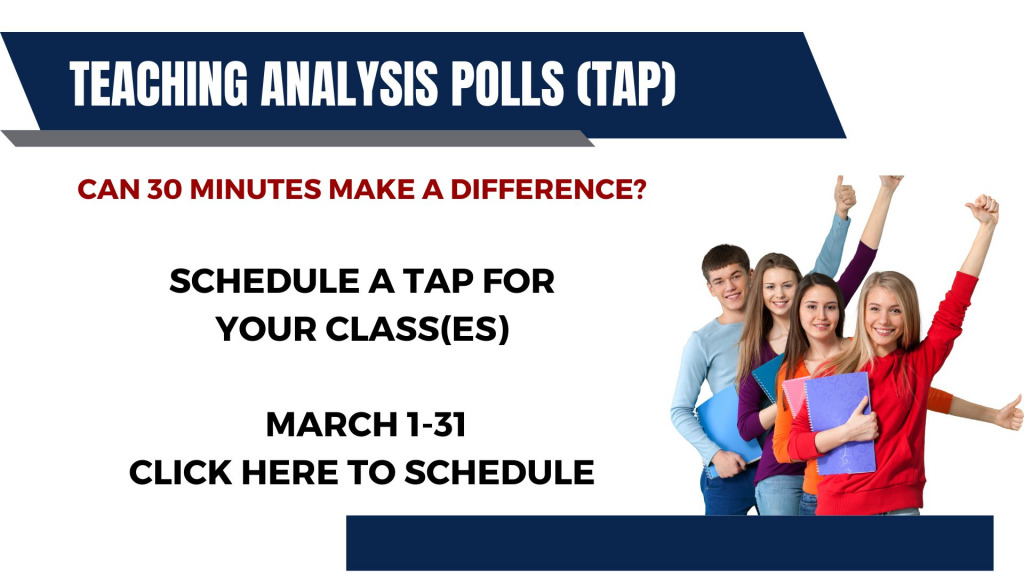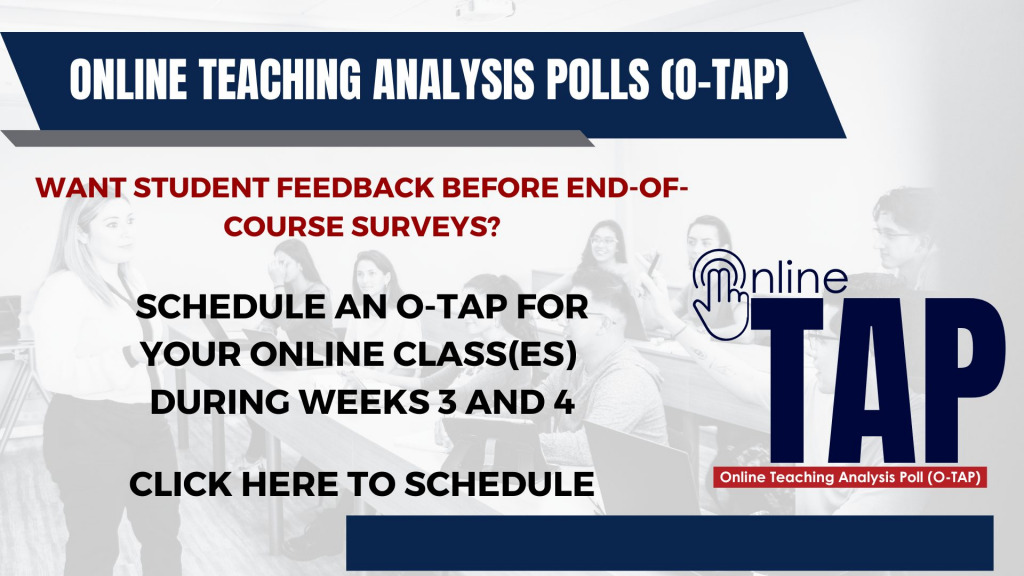Newsletter

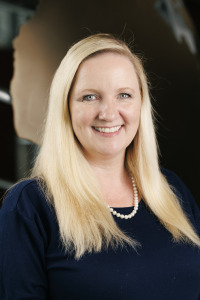
Director’s Welcome
Dr. Alexandra Barnett, Director of Teaching Excellence
Welcome to the Spring and Summer 2025 edition of our Center for Teaching Excellence (CTE) newsletter! As we enter a new year, we are reminded of the fresh opportunities God provides to grow as educators and followers of Christ. Whether you are preparing for a new semester or continuing ongoing work, remember that every lesson, interaction, and moment in the classroom, residentially and online, has the potential to plant seeds of faith, wisdom, and love for Christ. CTE’s mission is to walk alongside you in that journey, equipping you with practical tools and a community of support.
This semester, CTE will again focus on providing you with workshops and training on active learning strategies to foster students’ deeper learning, integrating a biblical worldview with academic excellence, and creating meaningful educational experiences. We hope this newsletter will inspire you to approach each day of teaching with renewed energy, confident that your efforts matter to God and impact our students as we Train Champions for Christ!
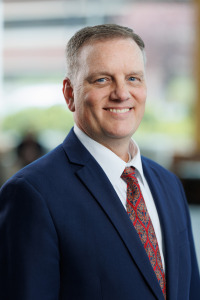
Artificial Intelligence in Teaching and Learning
Kjell Fenn, Teaching Consultant
The rapid advancement of Artificial Intelligence (AI) is touching many sectors of society, including education. In higher education, AI has the potential to enhance both teaching and learning, making classrooms even more dynamic and responsive to student needs. Below are several ideas for integrating AI in the classroom to augment teaching and learning.
One of the most powerful aspects of AI in education is its ability to support personalized learning. Educators can use AI tools like Copilot to create customized content by incorporating themes or scenarios that align with college students’ common interests or hobbies. For instance, faculty could prompt Copilot to generate math word problems or case studies that reflect common interests, such as sports, art, or technology.
Beyond personalizing assignments, AI offers interactive tools that actively engage students. AI can simulate real-world scenarios, assist in problem-solving, or even guide virtual lab experiments. For instance, a biology student can deepen understanding of photosynthesis by prompting ChatGPT to explain the steps of photosynthesis, while an art history class may go on an AI-powered virtual tour of the Louvre. This kind of dynamic interaction enriches the learning environment by making abstract concepts tangible, engaging students in meaningful ways that traditional methods may not fully capture.
AI can also serve as a valuable support tool for faculty, helping them differentiate instruction by creating multiple versions of learning activities that address diverse student abilities. For example, a teacher could prompt AI to write both basic and advanced problem sets of code for a computer course, allowing students to choose exercises suited to their skill levels. Another professor may have students who read at different levels (e.g., high school, undergraduate, and graduate), so she may prompt AI to draft a reading selection written at three different reading levels. Each reading selection would contain the same concepts and ideas, but the readability would be differentiated to meet students’ needs.
AI’s integration into teaching and learning can have benefits, from customizing assignments to offering interactive tools and supporting differentiated instruction. As AI continues to develop, educators have the opportunity to leverage its potential to create even more engaging and personalized educational experiences for students. CTE offers various professional development opportunities for faculty interested in using AI in education. Please check our Faculty Professional Development Guide for dates and times.
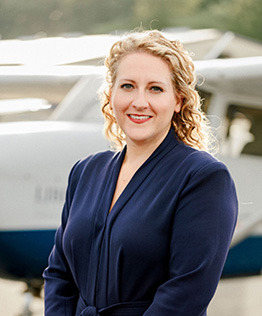
Harnessing Technology for Student-Centered Learning
Andrea Smith, Online Chair and Associate Professor, School of Aeronautics, CTE Faculty Fellow
Innovative teaching blends creativity and technology-enhanced learning. We frequently incorporate creativity or technology into curriculum design, but the real challenge arises when we are asked to merge the two. Nonetheless, with the emergence of Artificial Intelligence and other technologies, faculty must foster an environment where these elements are incorporated into their teaching. Doing so will allow students to prepare for a technology-driven workplace while also being taught ethical use of such tools.
At some point, many faculty may feel uncertain, overwhelmed, or resistant to incorporating technology into their teaching. However, shifting one’s perspective to see how technologies, such as AI, enhance educational practices is a worthwhile exploration that can lead to positive outcomes for students and faculty alike.
Embracing technology into educational practice does not have to be a scary endeavor. The educator must be okay with becoming the student. We tend to forget that with any new thing, even for seasoned professionals, patience and training are essential for success. In aviation, there is a saying, “A good pilot is always learning.” This phrase is interchangeable in any profession. “A good educator is always learning.” A good educator is also always learning and adapting for the betterment of their students. Integrating technology into education requires time to learn and demands a shift from traditional practices to embracing what education can become.
Simple adaptations that educators can implement with very little training are technologies like Adobe Express and Microsoft Teams Whiteboard. Such technologies enrich interactive instruction while providing personalized feedback, fostering practical engagement, and applicable outcome mastery. However, going a step further in technology adaptation would be integrating various technologies that require real-world simulations such as artificial intelligence (AI), virtual reality (VR), and augmented reality (AR). Such technologies create tailored, immersive experiences for learners which are essential for learning engagement meeting personal relevance and practical expectations (Salhab, 2024). Merging cognitive understanding with tactical abilities fosters a holistic approach to learning. In today’s educational setting, technology is integral, merging academic knowledge with skills-based processes to place the learner at the center of technology integration.
Learner-Centered Approach to Teaching
The learner must be the center of teaching. Investment in education must resonate with learners’ perceived value (Oreopoulous & Petronijevic, 2013; Rothwell, 2021). Education must be approached so that students’ needs and abilities are not just met, but also foster their flourishing. In higher education, the premise of education goes beyond just learning, it is to advance professionally. Individual growth, fulfillment, and employability are primary motivations for pursuing higher education (Sindre, 2019; Sin et al., 2019). Lumina-Gallup (2022) states that nearly two in three students say they are continuing their education to obtain knowledge or skills (65%) or because it will help them get a higher-paying job (62%). Most also say that remaining enrolled will allow them to pursue a more fulfilling career (60%) or give them personal fulfillment (55%).
According to the humanistic educational theory (1969), Carl Rogers noted that individuals have a natural desire to learn when they find personal relevance in the subject matter. Curated student-focused activities ensure that learning is personal, meaningful, and applicable to professional goals. “It is an overarching objective to cultivate a workforce equipped with the necessary twenty-first-century skills, as recognized by the global workforce and governmental requirements” (Salhab, 2024, p. 4). Curated student-focused activities encourage collaboration through team-based, scenario-based, and project-based learning, integrated with simulated technologies to create a dynamic learning environment where co-constructed and co-dependability duplicates what students need in real-world applications (Ng et al., 2021). Cultivating learning requires educators to look beyond the classroom forcing students to look into the future to serve the professional community. The student’s future is technology.
Innovation in Teaching
Staying abreast of educational technological advancements is vital for all students. Seeking virtual immersive training opportunities like AI integration into the curriculum or utilizing available simulated technologies ensures students from diverse locations and means can experience innovative learning (Salhab, 2024). This is especially important to a program like aviation. We want to ensure that all students can experience simulated flying or managing an airport through a simulated AI interface. Integrating online technologies like GPS simulators to navigate the skies, augmented realities to deconstruct and construct an engine, or integrating AI to learn from past aviation leaders brings all types of learning into the homes of diverse student populations.
Conclusion
Integrating innovative tools involves creative adaptation that inspires learning. Students must go beyond listening, and reading; they must actively perform and apply what they have learned. Refined teaching that incorporates modern technologies ensures enhanced learning that fosters a culture of exploration and discovery. “AI literacy across the curriculum infusion is vital to equip students with essential real-world skills and expertise in AI technology” (Salhab, 2024, p. 17). Ensuring AI and various exploratory technologies serve the needs of all students encourages exploration and nurtures achievement to meet their present and future professional endeavors.
References:
Ng, D. T. K., Leung, J. K. L., Chu, S. K. W., & Qiao, M. S. (2021). Conceptualizing AI literacy: An exploratory review. Computers and Education. Artificial Intelligence, 2, 100041. https://doi.org/10.1016/j.caeai.2021.100041
Oreopoulos, P., & Petronijevic, U. (2013). Making college worth it: A review of the returns to higher education. The Future of Children, 23(1), 41-65. https://doi.org/10.1353/foc.2013.0001
Rogers, C. R. (1969). Freedom to learn: A view of what education might become. C. E. Merrill Pub. Co
Rothwell, J. (2021, April 18). Students Continue to Weigh College Costs vs. Career Goals. Gallup.com. https://news.gallup.com/opinion/gallup/329120/students-continue-weigh-college-costs-career-goals.aspx.
Salhab, R. (2024). AI literacy across curriculum design: Investigating college Instructor’s perspectives. Online Learning (Newburyport, Mass.), 28(2)https://doi.org/10.24059/olj.v28i2.4426
Sin, C., Tavares, O., & Amaral, A. (2019). Accepting employability as a purpose of higher education? Academics’ perceptions and practices. Studies in Higher Education (Dorchester-on-Thames), 44(6), 920-931. https://doi.org/10.1080/03075079.2017.1402174
Sindre, G. (2019). Lean and Agile Higher Education: Death to Grades, Courses, and Degree Programs? In: Parsons D., MacCallum K. (eds) Agile and Lean Concepts for Teaching and Learning. Springer, Singapore. https://doi.org/10.1007/978-981-13-2751-3_8
Taneja, K., Maiti, P., Kakar, S., Guruprasad, P., Rao, S., & Goel, A. K. (2024). Jill Watson: A virtual teaching assistant powered by chatgpt. Lecture Notes in Computer Science, 324–337. https://doi.org/10.1007/978-3-031-64302-6_23
Focus on Faculty: Dr. Melissa Stewart
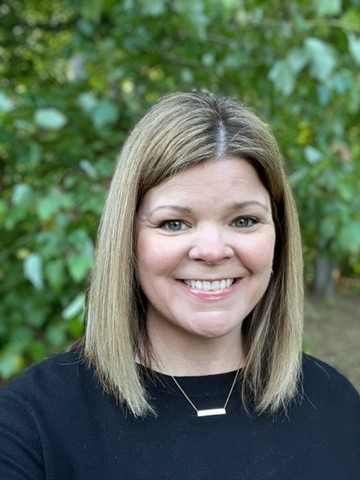
Associate Professor, Program Director of Political Science
Helms School of Government
Years of Service: 11 years
Favorite Scripture: Micah 6:8
Dr. Melissa Stewart serves as an associate professor, an instructional mentor, and the program director for political science at both the undergraduate and graduate levels in the Helms School of Government at Liberty University. She is a 2023 recipient of the President’s Award for Excellence in Teaching.
Dr. Stewart is constantly seeking to incorporate a biblical worldview into her courses and materials. She uses her role as a Subject Matter Expert to integrate a Christian perspective into her courses, creating a biblical foundation for the study of policy, government, and even research. Additionally, she ensures that her students experience biblical interactions firsthand. As stated by a colleague, “Her integration of faith into her teaching goes beyond content and into her interactions with her own students and her role as an instructional mentor in supporting her faculty teams’ interactions with their students. She treats every student as a child of God, even in difficult interactions.” Dr. Stewart also takes advantage of technology in order to ensure that her students are receiving the interaction and investment crucial to student success. She makes use of discussion boards and submission comments and even schedules video conferences with her students. One student commented, “She was so responsive, understanding, and helpful when I would reach out to her for help. In all communications with Dr. Stewart, she would always let me know that she supported me in my journey, and she made me feel that support. I always knew she was praying for me.” In her role as both a professor and a mentor, Dr. Stewart has shown her dedication to Liberty University’s mission to Train Champions for Christ.
Video Resources
Tips to Celebrate Student Success
Tools for Creating Engaging Teams Meetings
This video, presented by Dr. Jerry Pitts from Liberty University’s Center for Teaching Excellence, offers practical tips on celebrating student success. It emphasizes the importance of recognizing both big and small achievements to boost self-esteem and motivation. The video also highlights the value of fostering a supportive culture where students celebrate each other’s accomplishments and reflect on their own efforts. (Running Time: 2:13)
Have you been looking for ways to make Teams meetings with students and colleagues more engaging? There are various features that can be utilized as an organizer of a Teams meeting to increase audience engagement. This video highlights how the Polls, Rooms, and React features can be implemented to create interactive components for Teams meetings. (Running Time: 3:48)
Campus Services Spotlight: Jerry Falwell Library: More Than Meets the Eye
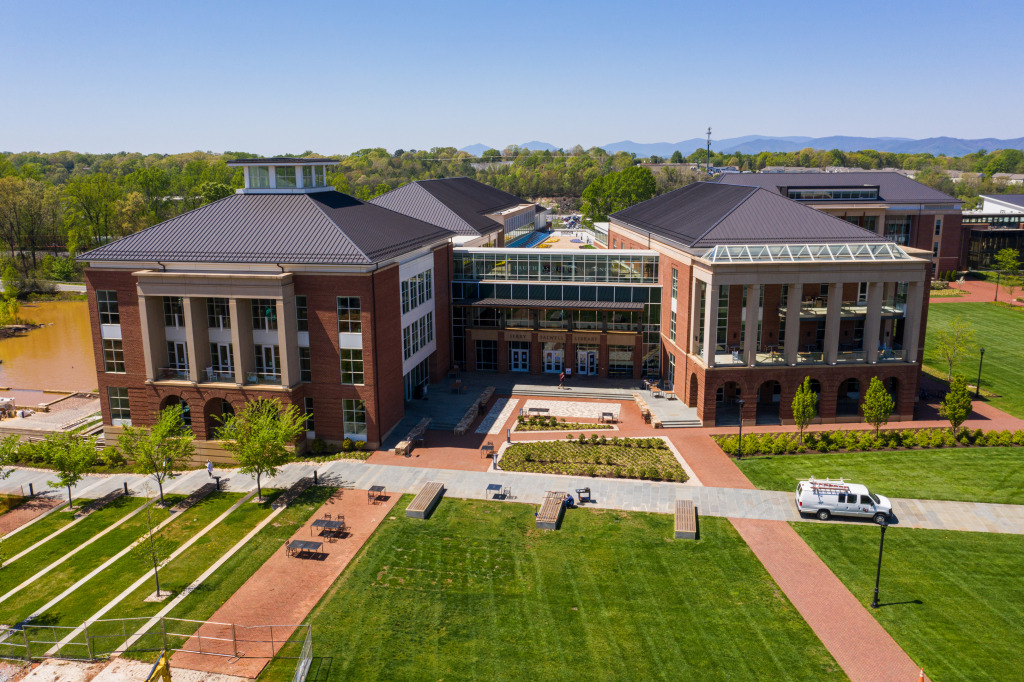
In addition to being a beautiful facility, the Jerry Falwell Library also features a collection of over 3.1 million physical and electronic items and nearly 450 multidisciplinary and specialized databases to support and enhance the LU curriculum. Plus, through Interlibrary Loan services, students and faculty have access to millions of additional resources!
The JFL also provides a Beyond Books Collection of practical and fun items such as board and outdoor games, tools, equipment, and electronics as well as digital audiobooks and e-books available through the Libby App. To further aid access to resources, faculty members can assign another member of the Liberty University community, such as a Graduate Assistant, to serve as a Proxy to check out research resources on their behalf. Faculty can also place items on Course Reserves for students to check out for one hour, three hours, 24 hours, three days, or seven days. Family members of faculty and other members of the Lynchburg community can acquire an annual community membership card to check out materials from the library for a nominal $10 fee.
JFL also provides a variety of services to meet the needs of faculty and students. General research assistance is available any time the library is open via chat, email, and phone. Students and faculty can also stop by the research assistance desk at the JFL Customer Service Center on weekdays during normal business hours for quick, in-person assistance or to schedule a research consultation for more in-depth assistance. Additionally, liaison librarians are assigned to each academic discipline, and they provide discipline-specific research assistance, teach library and information literacy sessions to classes in person and online, and assist faculty in recommending library purchases to support the curriculum. JFL strives to support the research endeavors of faculty and students through these resources and services as well as by archiving scholarship in the institutional repository, Scholars Crossing, and by hosting the annual Research Week competition.
2025 Conference on Teaching Excellence: Faith and Flourishing
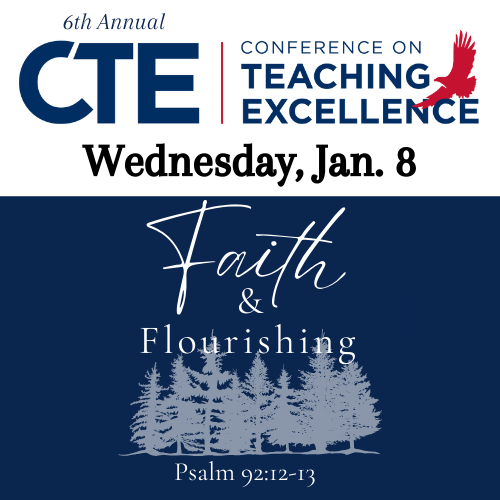
***The live, in-person plenary session has been rescheduled to a later date.*** Embracing this year’s theme, “Faith and Flourishing,” the 2025 Conference on Teaching Excellence is a half-day conference for residential and online faculty which will take place on Wednesday, Jan. 8, 2025. Breakout sessions will be conducted virtually beginning at 10:30 a.m.
The conference will feature more than 100 workshops, roundtables, videos, prayer sessions, academic papers, and research posters. Faculty will be enrolled in the “2025 Conference on Teaching Excellence” Canvas course by Tuesday, Jan. 7. A detailed conference program, including schedule and workshop descriptions, will be provided in the “Conference Overview” module. MS Teams links to the live workshops will be placed within each session. Virtual breakout sessions will be recorded and posted following the conference. In addition to the virtual, synchronous events, the conference provides several pre-recorded workshops, poster sessions, and academic papers. Faculty will retain access to the Canvas course throughout the Spring 2025 semester.
Conference Schedule:
Plenary Session: 8-10 a.m. ESTRESCHEDULED- Virtual Breakout Session I: 10:30-11 a.m. EST
- Virtual Breakout Session II: 11:05-11:35 a.m. EST
- Virtual Breakout Session III: 11:40 a.m.-12:10 p.m. EST
- Virtual Breakout Session IV: 12:15-12:45 p.m. EST
- Pre-recorded Sessions, Posters, and Papers: On Demand in Canvas course
The conference is open to all residential and online faculty and participation is strongly encouraged. All participants have the opportunity to earn CEUs by completing a verification quiz in the Canvas course. For more information, please visit the Conference on Teaching Excellence website or email CTE@liberty.edu.
CTE’s Podcast Year in Review
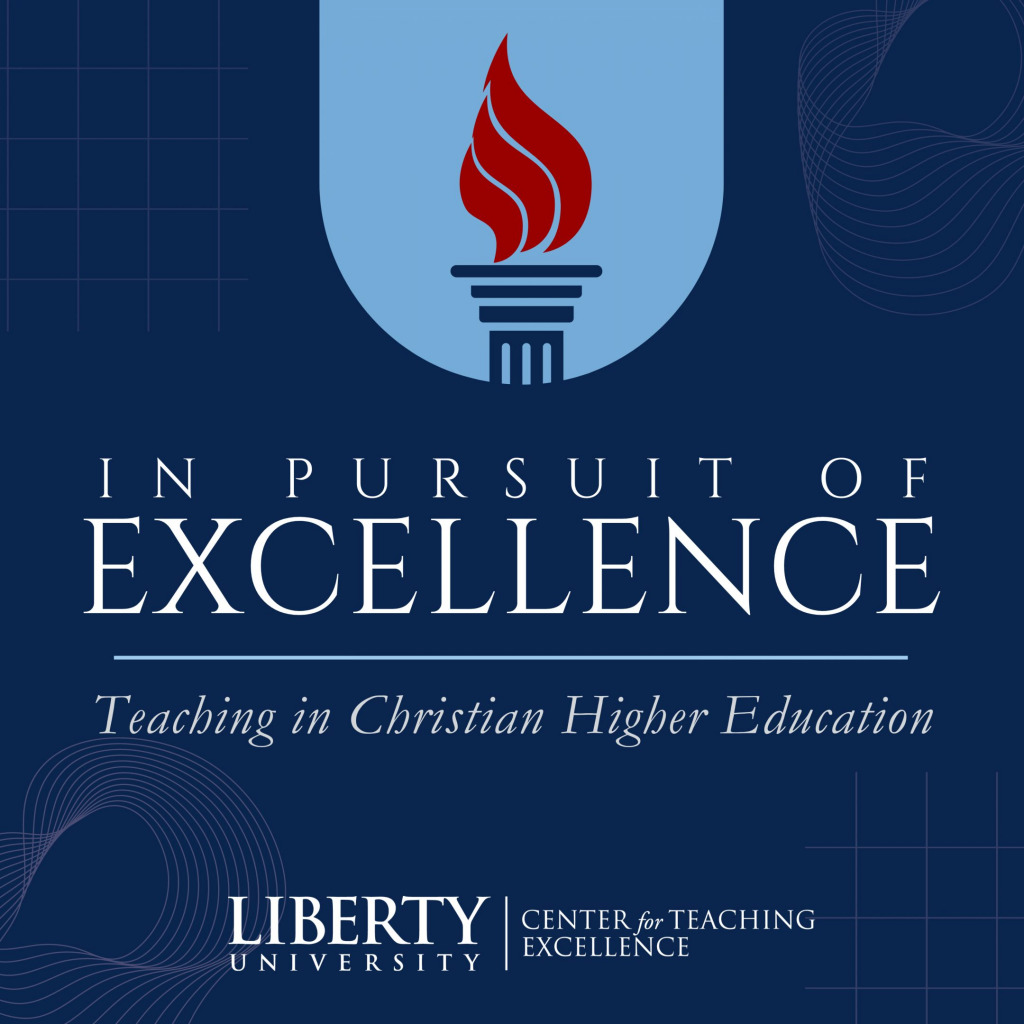
In Pursuit of Excellence: Teaching in Christian Higher Education, CTE’s podcast, celebrated an exciting first year of growth in 2024. With an audience now spanning 20 countries, listenership continues to expand. In our inaugural season, we recorded 48 episodes featuring nearly 20 Liberty University colleges, schools, and centers.
Episodes tackled timely issues such as the ethics of artificial intelligence, diversity on Christian college campuses, developing financially literate students, critical thinking in higher education, and stress management for faculty. Each episode was packed with engaging dialogue and practical takeaways that listeners found insightful and actionable.
Season one episodes are available on Spotify and Apple Podcasts. We invite you to listen to or subscribe to In Pursuit of Excellence. As we start the new year, we’re excited to reach new listeners and explore even more topics that matter in Christian higher education. Stay tuned for more engaging episodes as we continue our journey In Pursuit of Excellence!

The ILLUMINATE Grants for the Improvement of Teaching are designed to encourage faculty to enhance instruction through the introduction of new pedagogical and active learning* techniques, activities, class trips, and/or learner-centered experiences. All full-time and part-time residential faculty, as well as online faculty teaching on-campus intensives, are invited to apply. Individual faculty members and departmental/interdisciplinary teams of two or three are eligible; however, each applicant must be a qualified faculty member actively involved in the project with real duties, rather than merely supportive of the project, in order to be eligible for grant funding. Individuals may apply for up to $1,500, teams of two up to $3,000, and teams of three up to $4,500. Confidential scoring committees evaluate applicants on the grant’s purpose, student engagement, higher-order thinking, and potential to impact student learning. Priority is given to applicants who have never been awarded an ILLUMINATE Grant.
Awardees will showcase the project during an ILLUMINATE Implementation visit by a CTE staff member. Applications are open from Jan. 14 – March 31 each year. Visit our Grants page to learn more!
*Active Learning: In order to learn, students must do more than just listen: They must read, write, discuss, or engage in solving problems. In particular, students must engage in such higher-order thinking tasks as research, analysis, synthesis, and evaluation. Active learning engages students in two aspects – doing things and thinking about the things they are doing.

This May, CTE will offer a number of optional faculty development opportunities. CEUs (Continuing Education Units) are available for those who attend. For workshops that are held via MS Teams, links will be sent to registered participants in advance. Register via the Course Registration tool in myLU (Subject Code: PDCT). Email cte@liberty.edu with questions.
Teaching Academies
Teaching Academies provide instruction with hands-on application.
Monday, May 12
- 1-3:30 p.m. – Building a Classroom of Active Learning
Tuesday, May 13
- 9-11:30 a.m. – Designing Outstanding Residential Courses
- 1-3:30 p.m. – Taking Teaching to New Heights with AI
Canvas Sessions
Canvas Sessions present various elements of the LMS, catered to residential faculty, staff who support faculty, and GSAs.
Wednesday, May 14
- 9-11:30 a.m. – Canvas for Teachers
- 1-3:30 p.m. – Canvas for Designers
Teaching with Technology (TWT) Boot Camps
- Teaching with Technology (TWT) Boot Camp for Residential Faculty (Thursday-Friday, May 15-16, 8:30 a.m.-4 p.m.)
- Teaching with Technology (TWT) Virtual Boot Camp for Online Faculty (Saturday, May 17, 8:30 a.m.-4 p.m.)
TWT Boot Camp is aimed at integrating technology into everyday teaching. Throughout the experience, faculty will gain hands-on experience with tools that help: (a) present content, (b) communicate or collaborate, (c) schedule, organize, or capture, and (d) assess learning or provide feedback. Light breakfasts and lunches will be provided for residential TWT.
Research Boot Camp (Monday-Friday, June 2-6, 8:30 a.m.-4 p.m.)
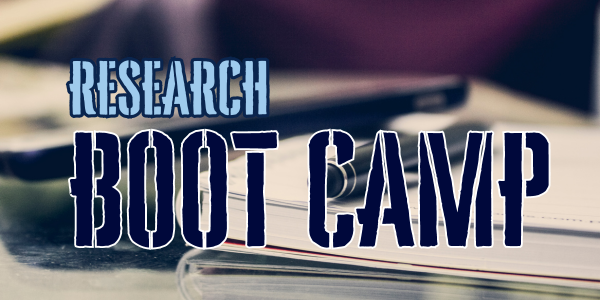
CTE is excited to announce its upcoming Research Boot Camp, June 2-6. Designed exclusively for higher education faculty, this multi-day camp allows participants to be part of a team that conducts academic research and completes an entire journal article and academic poster in one week.
Over the course of boot camp, you will:
- Attend sessions on creating a journal article, submission strategies, and navigating the publication process
- Conduct original academic research with live participants
- Receive expert guidance on methodology, data collection, analysis, and reporting
- Prepare a scholarly article for submission to Liberty University’s Journal for the Scholarship of Teaching and Learning
- Create an academic poster to showcase your project at an upcoming conference
By the conclusion of the week, faculty will leave Research Boot Camp with an article accepted for publication in a scholarly journal, approval to present at a conference, a template for an academic poster, and skills for scholarly success. Additionally, participants will be provided meals and a stipend for attending all five days of camp. Continuing Education Units (CEUs) will be available upon request. Register by emailing cte@liberty.edu or via the Course Registration tool in myLU (Subject Code: PDCT).

Don’t miss out on CTE’s spring and summer professional development opportunities. In our calendar, you will find a full range of topics, such as teaching and learning, faith learning integration, and teaching with technology. Please register via the Course Registration tool in myLU (Subject Code: PDCT). For workshops that are held via MS Teams, links will be sent to registered participants in advance. Email cte@liberty.edu with questions.
January
- New Faculty Orientation; Monday, Jan. 6
8 a.m.-4:30 p.m.; DeMoss Hall, Room 3066 - CTE Virtual Open Office Hours; Tuesday, Jan. 7, 14, 21 & 28
Noon-4:30 p.m. No registration required. Log on: MS Teams - Teaching Academy: Teaching Students with Disabilities (with Dr. Ester Warren); Tuesday, Jan. 7
9-11:30 a.m.; DeMoss Hall, Room 3066 - Teaching Academy: Developing Leadership Skills in Students (with Dr. Roger Mackey); Tuesday, Jan. 7
12:30-3 p.m.; DeMoss Hall, Room 3066 and MS Teams - Teaching Academy: Teaching and Designing Omnichannel/HyFlex Courses; Thursday, Jan. 9
9-11:30 a.m.; DeMoss Hall, Room 3066 and MS Teams - Teaching Academy: Using AI for Faculty Efficiency, Effectiveness, and Productivity; Thursday, Jan. 9
12:30-3 p.m.; DeMoss Hall, Room 3066 and MS Teams - Canvas Workshops; Friday, Jan. 10
Canvas for Teachers: 9-11:30 a.m.; DeMoss Hall, Room 3066 and MS Teams
Canvas for Designers: 1-3:30 p.m.; DeMoss Hall, Room 3066 and MS Teams - Creating Assignments, Quizzes, and Rubrics in Canvas; Monday, Jan. 13
10:30-11:15 a.m.; DeMoss Hall, Room 3066 and MS Teams - Virtual Prayer Session: Spring B-Term; Monday, Jan. 13
Noon-1 p.m. No registration required. Log on: MS Teams - Connecting to Our Mission and Purpose as Faculty: Maintaining the Standards; Wednesday, Jan. 15
5-5:45 p.m.; MS Teams - Best Practices for Designing Your Residential Course; Friday, Jan. 17
10:30-11:15 a.m.; DeMoss Hall, Room 3066 and MS Teams - Using Teaching Methods that Match the Gen Z Student; Monday, Jan. 20
10:30-11:15 a.m.; DeMoss Hall, Room 3066 and MS Teams - Fostering an Inclusive and Accessible Community for Our Students: Maintaining the Standards; Wednesday, Jan. 22
5-5:45 p.m.; MS Teams - Creating an Interactive Webpage with Adobe Express; Friday, Jan. 24
10:30-11:15 a.m.; DeMoss Hall, Room 3066 and MS Teams - Using AI in the College Classroom: Active Learning Series; Monday, Jan. 27
10:30-11:15 a.m.; DeMoss Hall, Room 3066 and MS Teams - Establishing Fair and Transparent Grading Practices for Our Students: Maintaining the Standards; Wednesday, Jan. 29
5-5:45 p.m.; MS Teams - Biblical Worldview Integration: Spring Keynote with Dr. Mark Eckel (Brown Bag Lunch Provided); Thursday, Jan. 30
11:30 a.m.-12:30 p.m.; DeMoss Hall, Room 3066 and MS Teams
February
- Saving Time with AI Design Tools; Monday, Feb. 3
10:30-11:15 a.m.; DeMoss Hall, Room 3066 and MS Teams - CTE Virtual Open Office Hours; Tuesday, Feb. 4, 11, 18 & 25
Noon-4:30 p.m. No registration required. Log on: MS Teams - Nurturing Academic and Professional Growth in Faculty and Students: Maintaining the Standards; Wednesday, Feb. 5
5-5:45 p.m.; MS Teams - Online Book Study: Small Teaching Online (Meeting 1 of 3); Thursday, Feb. 6
Noon-1 p.m.; MS Teams - Creating a Course Map: Active Learning Series; Friday, Feb. 7
10:30-11:15 a.m.; DeMoss Hall, Room 3066 and MS Teams - Virtual Prayer Session: Spring C-Term; Monday, Feb. 10
Noon-1 p.m. No registration required. Log on: MS Teams - What Good Online Teachers Do: Bonus Webinar; Wednesday, Feb. 12
5-5:45 p.m.; MS Teams - Using Message Students Who in Canvas; Friday, Feb. 14
10:30-11:15 a.m.; DeMoss Hall, Room 3066 and MS Teams - Use of Timers and Pay-Attention-To’s: Active Learning Series; Monday, Feb. 17
10:30-11:15 a.m.; DeMoss Hall, Room 3066 and MS Teams - In-Person Book Study: Every Good Endeavor (Meeting 1 of 3); Tuesday, Feb. 18
10-11 a.m.; DeMoss Hall, Room 3066 - Overcoming Technical Challenges: Fostering Strong Connections; Wednesday, Feb. 19
Noon-12:45; MS Teams - Biblical Worldview Integration with Dr. Mark Horstemeyer (Brown Bag Lunch Provided); Thursday, Feb. 20
11:30 a.m.-12:30 p.m.; DeMoss Hall, Room 3066 and MS Teams - How to Teach Large Classes: Active Learning Series; Friday, Feb. 21
10:30-11:15 a.m.; DeMoss Hall, Room 3066 and MS Teams - Utilizing MS Copilot for Efficiency and Productivity; Monday, Feb. 24
10:30-11:15 a.m.; DeMoss Hall, Room 3066 and MS Teams - Addressing Student Dissatisfaction: Fostering Strong Connections; Wednesday, Feb. 26
Noon-12:45; MS Teams - Creating Question Groups and Question Banks in Canvas; Friday, Feb. 28
10:30-11:15 a.m.; DeMoss Hall, Room 3066 and MS Teams
March
- How to Deliver Engaging Lectures: Active Learning Series; Monday, March 3
10:30-11:15 a.m.; DeMoss Hall, Room 3066 and MS Teams - CTE Virtual Open Office Hours; Tuesday, March 4, 18 & 25
Noon-4:30 p.m. No registration required. Log on: MS Teams - Boosting Student Motivations: Fostering Strong Connections; Wednesday, March 5
Noon-12:45 p.m.; MS Teams - Online Book Study: Small Teaching Online (Meeting 2 of 3); Thursday, March 6
Noon-1 p.m.; MS Teams - Virtual Prayer Session: Spring D-Term; Monday, March 17
Noon-1 p.m. No registration required. Log on: MS Teams - Supporting Disengaged Students: Fostering Strong Connections; Wednesday, March 19
Noon-12:45 p.m.; MS Teams - How to Use Student Input to Inform Your Teaching: Active Learning Series; Friday, March 21
10:30-11:15 a.m.; DeMoss Hall, Room 3066 and MS Teams - Preparing Your RESDEV for Course Copy; Monday, March 24
10:30-11:15 a.m.; DeMoss Hall, Room 3066 and MS Teams - In-Person Book Study: Every Good Endeavor (Meeting 2 of 3); Tuesday, March 25
10-11 a.m.; DeMoss Hall, Room 3066 - Efficient Grading: Bonus Webinar; Wednesday, March 26
Noon-12:45 p.m.; MS Teams - Omnichannel/HyFlex Basics: What Is It and How Do We Do It?; Friday, March 28
10:30-11:15 a.m.; DeMoss Hall, Room 3066 and MS Teams - Video Accessibility with Kaltura; Monday, March 31
10:30-11:15 a.m.; DeMoss Hall, Room 3066 and MS Teams
April
- CTE Virtual Open Office Hours; Tuesday, April 1, 8, 15, 22 & 29
Noon-4:30 p.m. No registration required. Log on: MS Teams - Building Relationships for a Successful Classroom: The Effective Online Professor; Wednesday, April 2
5-5:45 p.m.; MS Teams - Biblical Worldview Integration with Dr. Ed Gomes (Brown Bag Lunch Provided); Thursday, April 3
11:30 a.m.-12:30 p.m.; DeMoss Hall, Room 3066 and MS Teams - Designing Omnichannel/HyFlex Courses; Friday, April 4
10:30-11:15 a.m.; DeMoss Hall, Room 3066 and MS Teams - Teaching Omnichannel/HyFlex Courses; Monday, April 7
10:30-11:15 a.m.; DeMoss Hall, Room 3066 and MS Teams - Letting Your Enthusiasm Shine: The Effective Online Professor; Wednesday, April 9
5-5:45 p.m.; MS Teams - Online Book Study: Small Teaching Online (Meeting 3 of 3); Thursday, April 10
Noon-1 p.m.; MS Teams - Conducting a Course Analysis; Friday, April 11
10:30-11:15 a.m.; DeMoss Hall, Room 3066 and MS Teams - Aligning Your Course with the Canvas Template; Monday, April 14
10:30-11:15 a.m.; DeMoss Hall, Room 3066 and MS Teams - Managing Your Online Classroom: The Effective Online Professor; Wednesday, April 16
5-5:45 p.m.; MS Teams - SpeedGrader Tools for Efficiency and Quality Feedback; Friday, April 18
10:30-11:15 a.m.; DeMoss Hall, Room 3066 and MS Teams - Using Organization and Routines to Promote Student Engagement: The Effective Online Professor; Wednesday, April 23
5-5:45 p.m.; MS Teams - Insights from Teaching Analysis Polls (TAPs): Boosting Course Success; Friday, April 25
10:30-11:15 a.m.; DeMoss Hall, Room 3066 and MS Teams - New Analytics in Canvas; Monday, April 28
1-1:45 p.m.; DeMoss Hall, Room 3066 and MS Teams - In-Person Book Study: Every Good Endeavor (Meeting 3 of 3); Tuesday, April 29
10-11 a.m.; DeMoss Hall, Room 3066 - AI for Active Learning: Bonus Webinar; Wednesday, April 30
5-5:45 p.m.; MS Teams
May
- Leveraging myStudents in Your Canvas Course; Friday, May 2
10:30-11:15 a.m.; DeMoss Hall, Room 3066 and MS Teams - Faculty Enthusiasm = Student Engagement: Active Learning Series; Monday, May 5
10:30-11:15 a.m.; DeMoss Hall, Room 3066 and MS Teams - CTE Virtual Open Office Hours; Tuesday, May 6, 13, 20 & 27
Noon-4:30 p.m. No registration required. Log on: MS Teams - Teaching Strategies in the Online Classroom: Balancing Your Role; Wednesday, May 7
Noon-12:45 p.m.; MS Teams - Virtual Prayer Session: Summer B-Term; Monday, May 12
Noon-1 p.m. No registration required. Log on: MS Teams - Teaching Academy: Building a Classroom of Active Learning; Monday, May 12
1-3:30 p.m.; DeMoss Hall, Room 3066 and MS Teams - Teaching Academy: Designing Outstanding Residential Courses; Tuesday, May 13
9-11:30 a.m.; DeMoss Hall, Room 3066 and MS Teams - Teaching Academy: Taking Teaching to New Heights with AI; Tuesday, May 13
1-3:30 p.m.; DeMoss Hall, Room 3066 and MS Teams - Canvas Workshops; Wednesday, May 14
Canvas for Teachers: 9-11:30 a.m.; DeMoss Hall, Room 3066 and MS Teams
Canvas for Designers: 1-3:30 p.m.; DeMoss Hall, Room 3066 and MS Teams - Productivity in the Online Classroom: Balancing Your Role; Wednesday, May 14
Noon-12:45 p.m.; MS Teams - Teaching with Technology (TWT) Boot Camp for Residential Faculty; Thursday-Friday, May 15-16
8:30 a.m.-4 p.m.; DeMoss Hall, Room 3066 - Teaching with Technology (TWT) Virtual Boot Camp for Online Faculty; Saturday, May 17
8:30 a.m.-4 p.m.; MS Teams - Time Management in the Online Classroom: Balancing Your Role; Wednesday, May 21
Noon-12:45 p.m.; MS Teams - Online Book Study: Redeeming Your Time (Meeting 1 of 3); Thursday, May 22
Noon-1 p.m.; MS Teams - Instructor Presence in the Online Classroom: Balancing Your Role; Wednesday, May 28
Noon-12:45 p.m.; MS Teams
June
- Research Boot Camp; Monday-Friday, June 2-6
8:30 a.m.-4 p.m.; DeMoss Hall, Room 3066 - CTE Virtual Open Office Hours; Tuesday, June 3, 10, 17 & 24
Noon-4:30 p.m. No registration required. Log on: MS Teams - Serving Students with Accommodations: AI in the Online Classroom; Wednesday, June 4
5-5:45 p.m.; MS Teams - Pedagogical Uses: AI in the Online Classroom; Wednesday, June 11
5-5:45 p.m.; MS Teams - Encouraging Student Integrity: AI in the Online Classroom; Wednesday, June 18
5-5:45 p.m.; MS Teams - Online Book Study: Redeeming Your Time (Meeting 2 of 3); Thursday, June 19
Noon-1 p.m.; MS Teams - Virtual Prayer Session: Summer D-Term; Monday, June 23
Noon-1 p.m. No registration required. Log on: MS Teams - Leveraging Turnitin: AI in the Online Classroom; Wednesday, June 25
5-5:45 p.m.; MS Teams
July
- CTE Virtual Open Office Hours; Tuesday, July 1, 8, 15, 22 & 29
Noon-4:30 p.m. No registration required. Log on: MS Teams - Adapting to Changes in the Online Classroom: Professional Growth for Online Faculty; Wednesday, July 2
Noon-12:45 p.m.; MS Teams - Overcoming Burnout in the Online Classroom: Professional Growth for Online Faculty; Wednesday, July 9
Noon-12:45 p.m.; MS Teams - Supporting Students in the Online Classroom: Professional Growth for Online Faculty; Wednesday, July 19
Noon-12:45 p.m.; MS Teams - Navigating Relationships in the Online Classroom: Professional Growth for Online Faculty; Wednesday, July 23
Noon-12:45 p.m.; MS Teams - Online Book Study: Redeeming Your Time (Meeting 3 of 3); Thursday, July 24
Noon-1 p.m.; MS Teams - Redeeming Your Time as an Online Instructor: Professional Growth for Online Faculty; Wednesday, July 30
Noon-12:45 p.m.; MS Teams
